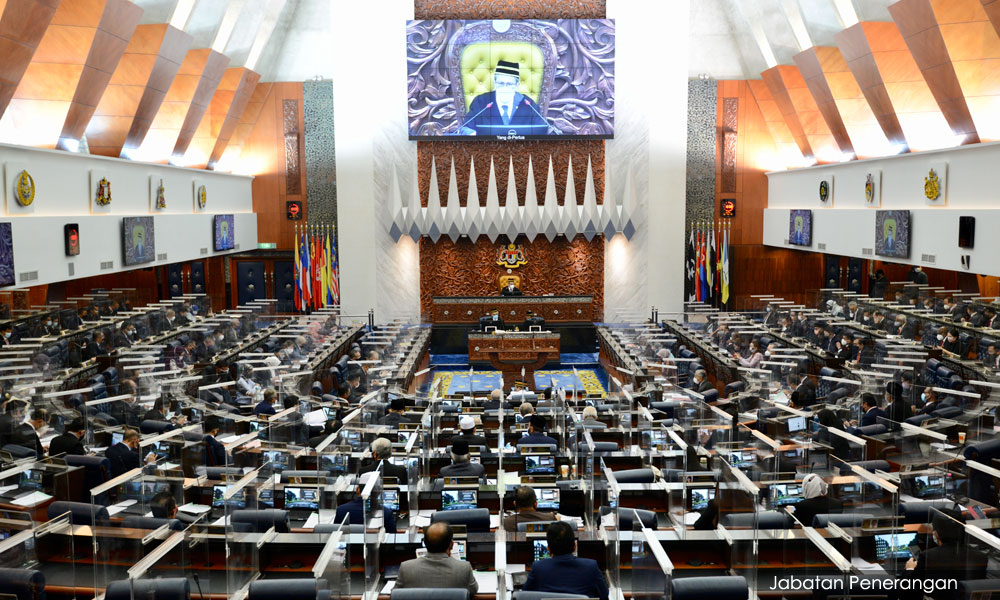We extend our congratulations to Kedah Menteri Besar Muhammad Sanusi Md Nor on his recent polygamous marriage. It is commendable that he has adhered to all legal procedures and requirements as stipulated by the relevant authorities.
However, it is disconcerting that he saw it fit to make the announcement in such a trivial way and gives the impression that it is all a bed of roses underestimating the complexities of polygamous marriages.
Polygamy is not merely a legal arrangement. It profoundly impacts the lives of all involved, especially women and children. Joking about “adding quotas” and giving lip service to just legal procedures devalues the emotional depth of these relationships and reduces women to mere trophies to be collected.
Surah An-Nisa 4:129 states:
“You are never able to be fair and just between women, even if it is your ardent desire: but turn not away (from a woman) altogether, to leave her (as it were) hanging (in the air). If ye come to a friendly understanding and practise self-restraint, God is Oft-forgiving, Most Merciful.”
The gravity of polygamy is in the strong ethical standards that Islam demands, urging justice and fairness in all relationships. However, the reality of polygamy often fails to meet these ideals, leading to pain and inequality.
Originally intended to offer protection and fairness to vulnerable orphans and widows, polygamy should not be used as a means for exploitation or to inflict emotional harm. Islam teaches self-control, discipline, fairness, and mercy.
Financial responsibility
It is interesting to note that the menteri besar’s public salary enables him to maintain two families justly, as required in Islam. However, financial capability alone does not ensure fairness or happiness in polygamous relationships.
Being just, providing emotional support, and ensuring the well-being of all parties remain paramount responsibilities. Leaders must recognise that the material aspect is only one component, and true justice requires far more than financial maintenance.
The lived realities of many women in polygamous marriages often show a different picture. Telenisa, a legal clinic under Sisters in Islam, reported through its Telenisa: Statistics and Findings 2023 that polygamy remains a significant issue, with:
Twenty-four percent of women reporting that their husbands failed to provide maintenance;
Seventeen percent facing a lack of child maintenance and marriages conducted without their consent;
Eleven percent dealing with unregistered polygamy, absconding husbands, and unjust turn-taking between wives;
Six percent reporting unjust turn-taking between wives;
Four percent experiencing marriages conducted without their knowledge.
These illustrate the systemic issues and injustices that too often accompany polygamous unions in Malaysia. The lived reality experiences of women in polygamous marriages reveal the emotional and financial challenges that are frequently ignored in public discourse.
Lived experiences
Forced consent: A woman was distressed as her husband married a second wife against her wishes. Post-marriage, he spent most of his time with the new wife, leaving her feeling abandoned.
Second wife’s abandonment: A second wife faced neglect after her husband hid their marriage from his first wife. Once discovered, he spent less time with the pregnant second wife, leaving her emotionally and financially vulnerable.
Personal stories such as these show the distress and unfairness that polygamy brings to families, leading to suffering, injustice, and instability.
Regressive amendments
Regressive amendments to the Islamic family laws in Malaysia have exacerbated these issues. The 1994 amendments to the Islamic Family Law (Federal Territories) Act 1984 removed a crucial requirement that ensured the existing family’s standard of living would not drop before a court could approve a new marriage.
Further amendments in 2005 weakened protections by changing the requirement from a marriage needing to be “just AND necessary” to simply “just OR necessary.”
These relaxed conditions, coupled with weak enforcement, have allowed polygamy to grow with little regard for the well-being of women and children.
Call for empathy, responsibility
The practice of polygamy can create significant emotional and financial strain on families, particularly affecting women and children.
We urge leaders to approach these serious issues with empathy, respect, and an understanding of their profound impact. Joking about polygamy belittles the real struggles women face in such situations and minimises the deep emotional toll it can take on families.
Polygamy is not something to be made light of or be reduced to a matter of quotas. It has deep, lasting consequences for women, children, and the very fabric of family life.
We call upon our leaders to exercise greater responsibility in their words and actions, recognising the gravity of their choices and their profound impact on those they lead. - Mkini
SISTERS IN ISLAM is an NGO working towards advancing the rights of Muslim women in Malaysia within the framework of Islam, universal human rights principles, constitutional guarantees, as well as the lived realities and experiences of women.
The views expressed here are those of the author/contributor and do not necessarily represent the views of MMKtT.






No comments:
Post a Comment
Note: Only a member of this blog may post a comment.